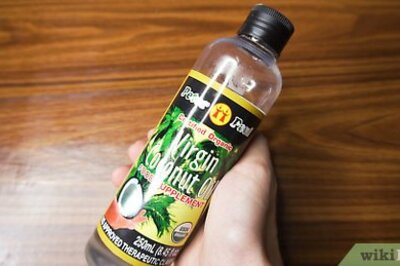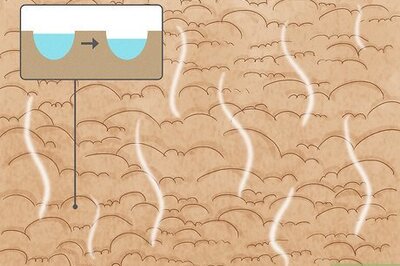
views
Wintertime means dry skin, period. As humidity is low both outdoors and indoors, the water content of the outermost layer of skin i.e. epidermis tends to absorb and reflect the level of moisture around it, resulting in dry skin. “Upper thin layer of epidermis is stratum corneum, a part of epidermis that acts as a skin barrier. Skin barrier is formed by lipid, dead or dying cells. Water loss accelerates when this barrier gets disturbed due to temperature contrast within the four walls of the house and outside,” says Dr. Geetika Mittal Gupta, Aesthetic physician and founder, ISAAC Luxe.
People usually have heaters on inside and when they step out, the skin is exposed to the cold harsh winds that eventually sucks moisture and affects the natural moisture and oils present in the skin, that results in dry and dehydrated skin. Due to the cold climate, consumption of water reduces leading to dehydrated skin. With no visible loss of water through sweat, people do not worry about consuming more and more water.
Apart from those, there is common myth that people believe in, that is no need to apply sunscreen while going out. Believe you us, it is equally important in the cold months. “Due to lack of application of sunblock, skin barrier loosens due to sun damage, resulting in rough and dry skin,” adds Dr Gupta.
Normally, dry skin is not a serious health problem, but it can produce some serious complications like chronic eczema, bleeding from fissures, secondary bacterial infection, which may require antibiotics.
Dr Gupta shares some simple ways that would help you relieve symptoms of winter dry skin.
Also Read: PICS: Rashmika Mandanna Looks Divine In Red Embellished Lehenga With Strappy Blouse
- Take a quick (5-10 minutes) warm bath or shower daily. If you take more time than that, skin’s oily layer and moisture can be lost. Dab dry your skin with cotton towel and moisturize it.
- Using a moisturizer is the best way to rehydrate the epidermis and prevent water loss from the skin. Moisturizers containing emollients, which include linoleic, linolenic, and lauric acids, can help to fill the spaces between skin cells, that occurs due to loss of moisture and smoothen the surface of the skin. Humectants like ceramides, hyaluronic acid, glycerine, sorbitol in moisturizers help attract moisture to the skin from the deeper layers of skin or from the external environment.
- Follow a good skincare routine, use a creamy cleanser and wash your face with lukewarm water, follow it with a toner that contains soothing materials. Use face serum which contains active ingredients like Vitamin C and hyaluronic acids. When you are using serum containing hyaluronic acid, use it on damp skin, follow the sandwich method and then use a moisturizer containing humectants like glycerine, and seal the deal with a sunscreen. At night, you can use products containing richer amount of substances like ceramides or retinol if you are using it already.
- Adjust skincare regimen like cutting back on exfoliating scrubs, face masks causing dryness, and steam treatments that will decrease damage to the skin barrier.
- Drink plenty of water, have warm water in the form of green tea or any healthy drink, you prefer to keep hydrated. It will boost skin hydration, which helps it stay smooth.
- Ensure intake of diet rich in omega 3 and omega 6 fatty acids like fish, spinach, broccoli, cabbage, berries that help to repair damaged skin barrier.
- Do not forget to take your multivitamins specially Vitamin D regularly, as it repairs damaged skin barrier and helps maintain healthy skin.
- Make sure you maintain normal activities of body to regulate body metabolism going on, because it releases impurities and toxins from the body.
- Take your beauty sleep on time as it helps your skin to repair and rejuvenate.
- Use a humidifier in the winter at around 60%, a level that should be sufficient to replenish the top layer of the epidermis. This device can introduce moisture back into the air, helping rehydrate the outer layer of the skin.
- Avoid wearing abrasive wool directly on skin, layer it with cotton or skin friendly material.
- Do not wash your clothes with harsh chemical detergents.
- Limit exposure to heat, take less time in hot shower, avoid sitting in front of heaters and fire. It drags away vital moisture from the skin
- People experience dry skin on exposed areas specially on hands because of continuous hand washing and sanitizing. Wearing gloves in cold temperatures will help prevent the skin from drying out.
Read all the Latest Lifestyle News here




















Comments
0 comment